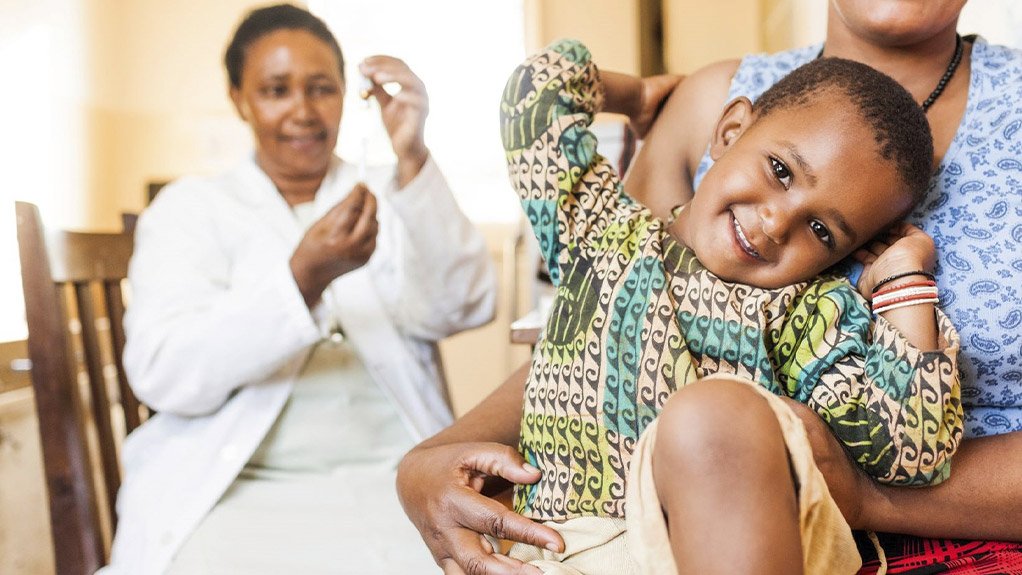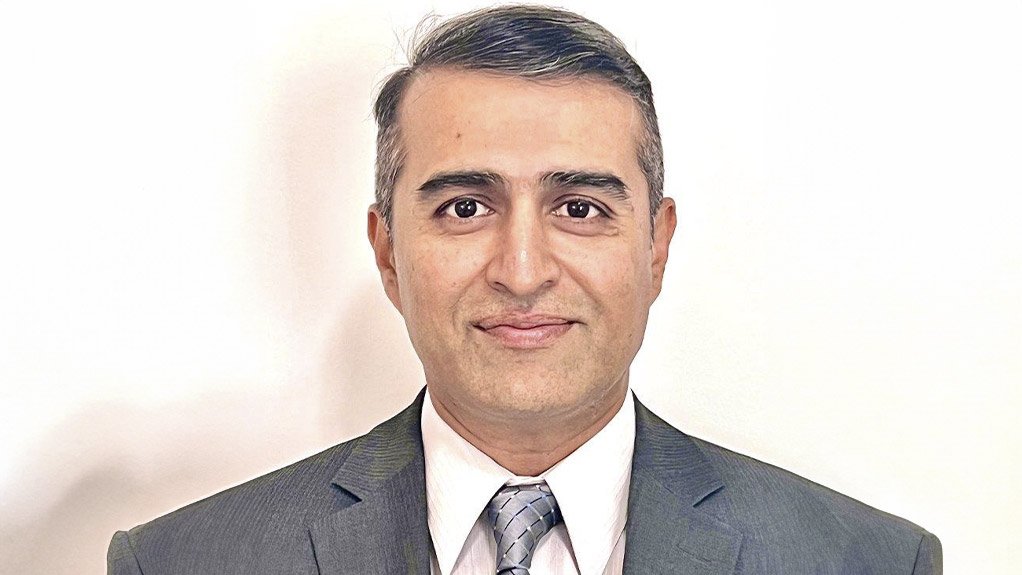Strong healthcare supply chains are essential to fight killer diseases like HIV, TB and malaria
This article has been supplied.
2024 SAPICS Conference Features Global Public Health Supply Chain Track
Supply chains get goods from manufacturers to end users. They also save lives. Strong health supply chains are critical to get lifesaving medicines and health products to where they are needed, when they are needed, including to the most vulnerable communities. Efficient supply chains are essential in the fight against killer diseases like HIV, tuberculosis (TB) and malaria, and are the backbone of health systems.
Recognising the importance of this area of supply chain management, organisers of the SAPICS Conference have lined up exceptional local and international experts who will share their insights on healthcare supply chain issues at this year’s event. The conference also features a global public health supply chain track that will run throughout the conference programme.
The SAPICS Conference is Africa’s leading event for the supply chain profession. Now in its 46th year, the 2024 conference takes place in Cape Town from 9 to 12 June 2024. It will see hundreds of attendees from around the world gather to network, learn and share knowledge through panel discussions, presentations, workshops and case studies. SAPICS (The Professional Body for Supply Chain Management) is hosting this year’s conference in association with the Southern African Association of Freight Forwarders (SAAFF).
Supply chain digitalisation benefits patients
Supply chain digitalisation is topping the agendas of organisations around the world. Digitalised supply chains enable better visibility, improved optimisation and collaboration, better accountability, traceability, compliance and security. Vital learnings from the private sector’s supply chain digitalisation journeys are being applied in public health and delivering benefits to organisations, health workers and especially patients. The not to be missed health supply chain focused sessions on this year’s line-up include a powerful presentation comprising case studies from the World Health Organization (WHO) on the impact of supply chain digitalisation on the health systems of low and middle income countries (LMICs). United States based Jyothiswaroop Jayaprakash, who works with the WHO, will co-present at SAPICS 2024 alongside Ramy Guiguis and Carl Leitner. He outlines the topic of their presentation: “Supply chain processes that ensure the availability of medicines for patients are integral to healthcare systems. Digitalising supply chain processes benefits organisations, health workers and, most importantly, patients. The lack of a comprehensive approach to digitalisation in LMICs has resulted in fragmented systems that are impacting patient safety. To address this, USAID and WHO are developing handbooks to guide LMICs in public health digital supply chain transformation. Our presentations will share the architectural and standards approaches adopted in these handbooks to enable end-to-end visibility and commodity traceability. We will present case studies highlighting successful adoption of these approaches by various countries.”
Control towers can transform health supply chains
Supply chain control towers will be in the spotlight in another important healthcare focused presentation at this year’s SAPICS Conference. Control towers can transform supply chain execution. Speaker Chad Davenport will explore the design, functionality, implementation and benefits of supply chain control towers in global health supply chains. His experience includes working directly with operational teams to oversee the procurement and delivery of more than USD6 billion worth of health commodities to more than 100 countries for USAID and the Global Fund to Fight AIDS, Tuberculosis and Malaria.
Governance is critical in health product supply chains
Global health supply chain specialist Tom Brown will share his insights on supply chain governance with 2024 SAPICS Conference attendees. “In health product supply chains, which typically involve a wide range of organisations, governance is critical to supply chain success,” he states. “Understanding how effective governance models work, and why they work, can help governments, donors and implementing partners to work together on supply chain reforms that will stick. This session will share some insights from USAID global health projects and draw some lessons that can be applied in health product supply chains,” he explains.
The last mile is often the toughest
The conference will feature a round table discussion exploring the challenges of last mile delivery and sharing viable solutions, particularly in the realms of emergency aid and disaster relief services. Dr Iain Barton of Health 4 Development will moderate these important discussions. Additionally, the transformative role of technology, such as drone delivery, will be a focal point in the programme, with insights from experts including Professor Prashant Yadav from INSEAD and Oliver Defawe from VillageReach.
“Lives depend on healthcare supply chains. We are delighted to have a distinguished array of speakers, sponsors and organisations from the global health supply chain profession joining us once again this year. They will contribute invaluable insights into supply chain best practices and engage in discussions on the complexities, challenges and successes within these intricate supply chains," says MJ Schoemaker, president of SAPICS. "Our objective is to foster a collaborative environment where supply chain professionals from diverse sectors can meet to emphasise the fundamental pillars of robust supply chains: best practices and well-equipped, empowered individuals to manage them. Regardless of the sector or industry, our aim is to highlight the essential elements that contribute to supply chain resilience and efficiency."
Article Enquiry
Email Article
Save Article
Feedback
To advertise email advertising@creamermedia.co.za or click here
Announcements
What's On
Subscribe to improve your user experience...
Option 1 (equivalent of R125 a month):
Receive a weekly copy of Creamer Media's Engineering News & Mining Weekly magazine
(print copy for those in South Africa and e-magazine for those outside of South Africa)
Receive daily email newsletters
Access to full search results
Access archive of magazine back copies
Access to Projects in Progress
Access to ONE Research Report of your choice in PDF format
Option 2 (equivalent of R375 a month):
All benefits from Option 1
PLUS
Access to Creamer Media's Research Channel Africa for ALL Research Reports, in PDF format, on various industrial and mining sectors
including Electricity; Water; Energy Transition; Hydrogen; Roads, Rail and Ports; Coal; Gold; Platinum; Battery Metals; etc.
Already a subscriber?
Forgotten your password?
Receive weekly copy of Creamer Media's Engineering News & Mining Weekly magazine (print copy for those in South Africa and e-magazine for those outside of South Africa)
➕
Recieve daily email newsletters
➕
Access to full search results
➕
Access archive of magazine back copies
➕
Access to Projects in Progress
➕
Access to ONE Research Report of your choice in PDF format
RESEARCH CHANNEL AFRICA
R4500 (equivalent of R375 a month)
SUBSCRIBEAll benefits from Option 1
➕
Access to Creamer Media's Research Channel Africa for ALL Research Reports on various industrial and mining sectors, in PDF format, including on:
Electricity
➕
Water
➕
Energy Transition
➕
Hydrogen
➕
Roads, Rail and Ports
➕
Coal
➕
Gold
➕
Platinum
➕
Battery Metals
➕
etc.
Receive all benefits from Option 1 or Option 2 delivered to numerous people at your company
➕
Multiple User names and Passwords for simultaneous log-ins
➕
Intranet integration access to all in your organisation























